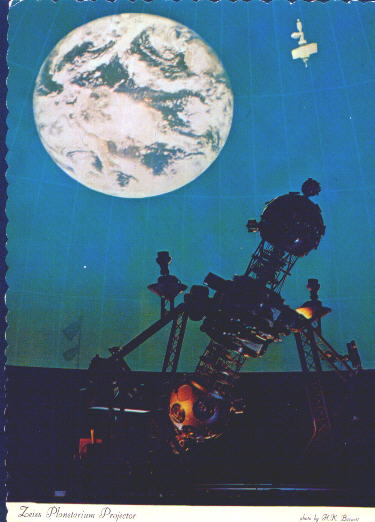The current solar cycle is weaker than usual, so you might expect a correspondingly low-key meeting. On the contrary, the halls and meeting rooms were abuzz with excitement about an intense solar storm that narrowly missed Earth.
"If it had hit, we would still be picking up the pieces," says Daniel Baker of the University of Colorado, who presented a talk entitled The Major Solar Eruptive Event in July 2012: Defining Extreme Space Weather Scenarios.
The close shave happened almost two years ago. On July 23, 2012, a plasma cloud or "CME" rocketed away from the sun as fast as 3000 km/s, more than four times faster than a typical eruption. The storm tore through Earth orbit, but fortunately Earth wasn't there. Instead it hit the STEREO-A spacecraft. Researchers have been analyzing the data ever since, and they have concluded that the storm was one of the strongest in recorded history. "It might have been stronger than the Carrington Event itself," says Baker.
The Carrington Event of Sept. 1859 was a series of powerful CMEs
that hit Earth head-on, sparking Northern Lights as far south as Tahiti.
Intense geomagnetic storms caused global telegraph lines to spark,
setting fire to some telegraph offices and disabling the 'Victorian
Internet." A similar storm today could have a catastrophic effect on
modern power grids and telecommunication networks. According to a study
by the National Academy of Sciences, the total economic impact could
exceed $2 trillion or 20 times greater than the costs of a Hurricane
Katrina. Multi-ton transformers fried by such a storm could take years
to repair and impact national security.
More - Link >>> http://science.nasa.gov/science-news/science-at-nasa/2014/02may_superstorm/
Source: NASA Science News.
2014: 75th Year of Pittsburgh's Buhl Planetarium

Want to receive SpaceWatchtower blog posts in your inbox ?
Send request to < spacewatchtower@planetarium.cc >..
gaw
Glenn A. Walsh, Project Director,
Friends of the Zeiss < http://buhlplanetarium.tripod.com/fotz/ >
Electronic Mail - < gawalsh@planetarium.cc >
About the SpaceWatchtower Editor / Author: < http://buhlplanetarium2.tripod.com/weblog/spacewatchtower/gaw/ >
SpaceWatchtower Blog: < http://spacewatchtower.blogspot.com/ >
Also see: South Hills Backyard Astronomers Blog: < http://shbastronomers.blogspot.com/ >
Barnestormin: Writing, Essays, Pgh. News, & More: < http://www.barnestormin.blogspot.com/ >
SPACE & SCIENCE NEWS, ASTRONOMICAL CALENDAR:
< http://buhlplanetarium.tripod.
Twitter: < https://twitter.com/spacewatchtower >
Facebook: < http://www.facebook.com/pages/
Author of History Web Sites on the Internet --
* Buhl Planetarium, Pittsburgh:
< http://www.planetarium.
* Adler Planetarium, Chicago:
< http://adlerplanetarium.
* Astronomer, Educator, Optician John A. Brashear:
< http://johnbrashear.tripod.com >
* Andrew Carnegie & Carnegie Libraries:
< http://www.andrewcarnegie.
* Civil War Museum of Andrew Carnegie Free Library:
< http://garespypost.tripod.com >
* Duquesne Incline cable-car railway, Pittsburgh:
< http://inclinedplane.tripod.
* Public Transit:
< http://andrewcarnegie2.tripod.

No comments:
Post a Comment